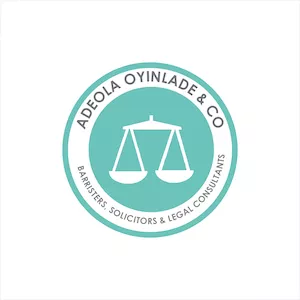- within Government and Public Sector topic(s)
- with Finance and Tax Executives
- in United States
- with readers working within the Retail & Leisure and Law Firm industries
- within Government and Public Sector topic(s)
- in United States
- with readers working within the Advertising & Public Relations, Retail & Leisure and Law Firm industries
- within Government, Public Sector, Real Estate and Construction and Insurance topic(s)
1.0 Introduction
For foreign investors seeking to access Nigeria's vast consumer market and resource-rich economy, joint ventures (JVs) remain one of the most viable entry. A joint venture enables parties to pool resources, share risks, and benefit from local expertise, while also ensuring compliance with regulatory and local participation requirements. Yet, the success of such ventures depends not only on commercial synergy but also on a clear understanding of the legal framework governing their establishment and operation in Nigeria. This article outlines the key legal essentials that foreign investors must consider when structuring and implementing joint ventures in the Nigerian market.
2.0 Structuring Joint Ventures in Nigeria
When entering into a joint venture in Nigeria, foreign investors must carefully consider the form, governance, and contractual arrangements that will underpin the partnership. Structuring choices have significant implications for regulatory compliance, liability, taxation, and dispute resolution.
Broadly, JVs in Nigeria are established either as incorporated entities or as contractual arrangements.
2.1 Incorporated Joint Ventures
The most common model is the incorporated JV, typically registered as a limited liability company under the Companies and Allied Matters Act, 2020 ("CAMA"). In this structure, the JV is a separate legal entity, capable of holding assets, incurring liabilities, and suing or being sued in its own name.
- Shareholding Structure: While 100% foreign ownership is allowed in many sectors, laws impose equity participation requirements in some industries. For example, under the Nigerian Oil and Gas Industry Content Development Act, 2010, indigenous companies must hold at least 51% ownership in certain oilfield services companies.1
- Corporate Governance: For instance, in a JV between a Nigerian construction firm and a foreign engineering company, the Shareholders' Agreement may stipulate that key project decisions (e.g., procurement above a threshold) require unanimous board approval, thereby protecting minority investors.
- Capitalisation and Licensing: A foreign manufacturing JV may be required to register with the Nigerian Investment Promotion Commission (NIPC) and obtain pioneer status incentives, while a telecoms JV would need licensing from the Nigerian Communications Commission (NCC).2
2.2 Contractual Joint Ventures
A contractual JV does not create a separate legal entity but is instead governed by a JV Agreement. This model is often adopted for project-specific collaborations and it has the following unique features:
- Flexibility: For example, a foreign EPC (Engineering, Procurement, and Construction) company and a Nigerian contractor might sign a contractual JV to build a power plant, agreeing to split profits 60:40, without creating a new company.
- Liability: In road construction JVs, if defects occur, both parties may be held jointly liable by the government agency since there is no corporate shield.
- Duration: A foreign-Nigerian consortium may form a JV strictly for the purpose of executing a government housing project, which dissolves once the project is handed over.
2.3 Hybrid Arrangements
In certain industries, parties use hybrid structures combining contractual and incorporated features.
- Example: A foreign renewable energy developer may initially enter a contractual JV with a Nigerian energy distributor for feasibility studies. Once the project becomes viable, the parties may incorporate a JV company to own and operate the solar power plant.
2.4 Documentation Essentials
Regardless of structure, comprehensive documentation is critical. Key instruments typically include:
- Joint Venture Agreement (JVA) or Shareholders' Agreement
- Articles of Association:g., embedding restrictions on share transfers to prevent dilution of the foreign investor's interest.
- Technology Transfer or Technical Services Agreements:g., a foreign pharmaceutical company licensing technology to a Nigerian partner under approval from NOTAP (National Office for Technology Acquisition and Promotion).
- Ancillary Contracts:g., an offtake agreement where a cement JV guarantees supply to a Nigerian construction giant.
Properly aligning these documents helps avoid inconsistencies, particularly in relation to foreign exchange restrictions, intellectual property rights, and compliance with Nigerian local content laws.
3.0 Key Legal Essentials for Foreign Investors
Foreign investors must navigate a number of regulatory, contractual, and compliance requirements when entering joint ventures in Nigeria. These essentials determine not only the viability of the investment but also its long-term sustainability.
3.1 Regulatory Approvals and Investment Protection
- NIPC Registration: All foreign-owned JVs must register with the Nigerian Investment Promotion Commission (NIPC) in order to be operational in the country and to qualify for investment incentives.3
- Business Permits & Expatriate Quotas: Issued by the Ministry of Interior, these allow JVs to employ foreign directors or technical staff.
3.2 Sector-Specific Licensing
Some industries impose additional licensing and local participation requirements.
- Oil & Gas: The Nigerian Oil and Gas Industry Content Development Act requires indigenous participation and registration with NCDMB. A foreign drilling contractor must structure its JV with a Nigerian oilfield services firm to comply with the 51% indigenous ownership rule.
- Telecommunications: Licenses must be obtained from the Nigerian Communications Commission (NCC).4 A JV between an international broadband provider and a Nigerian ICT firm must secure an ISP licence before operations.
- Banking & Fintech: Approval is required from the Central Bank of Nigeria (CBN). An international fintech entering into a JV with a Nigerian microfinance bank must obtain CBN's approval for mobile money operations.
3.3 Competition and Antitrust Compliance
The Federal Competition and Consumer Protection Act, 2018, requires mergers and certain JV arrangements to be notified to the FCCPC.5 Thus, a JV between two major Nigerian beverage companies and an international brewer may require FCCPC clearance if the arrangement substantially reduces competition.
3.4 Taxation and Fiscal Issues
Tax structuring is critical to avoid double taxation and ensure access to incentives.
- Corporate Income Tax: JVs incorporated in Nigeria are subject to 30% corporate tax, unless eligible for pioneer status incentives.
- Withholding Tax & VAT: Payments for royalties or services to foreign partners attract withholding tax, while transactions may be VAT-liable.
- Double Tax Treaties: Nigeria has DTAs with countries such as the UK, France, and South Africa, which can reduce tax exposure for foreign JV partners.
3.5 Foreign Exchange Controls
Nigeria maintains restrictions on foreign exchange transactions under the Foreign Exchange (Monitoring and Miscellaneous Provisions) Act. An investor in a Nigerian power JV must import capital through an authorised dealer bank to obtain a Certificate of Capital Importation (CCI), which ensures the right to repatriate dividends in foreign currency.6
3.6 Dispute Resolution
Foreign investors often prefer arbitration to litigation for cross-border disputes. Nigeria is a party to the New York Convention and enforces foreign arbitral awards. A JV agreement between an international company and a Nigerian company may stipulate arbitration under the London Court of International Arbitration (LCIA) Rules, with seat in London, while still enforceable in Nigeria under the Arbitration and Mediation Act, 2023.
4.0 Practical Risk Mitigation Strategies
While Nigerian joint ventures present significant opportunities, foreign investors must adopt the following strategies that minimise legal, regulatory, and operational risks.
- Conduct Comprehensive Due Diligence: Investors should verify the legal, financial, and regulatory standing of potential Nigerian partners before entering into a JV.
- Structure Contracts with Precision: JV agreements should clearly define capital contributions, profit-sharing, management roles, exit options, and dispute resolution mechanisms.
- Secure Regulatory Engagement Early: Engaging regulators like the CBN, NCC, or NIPC early ensures smoother approval processes and reduces compliance surprises.
- Manage Foreign Exchange & Repatriation Risks: Investors should import capital through authorised dealer banks and secure a Certificate of Capital Importation (CCI) to guarantee repatriation of dividends.
- Adopt Robust Governance Mechanisms: Clear governance structures such as board composition, veto rights, and reserved matters mitigate the risk of deadlock or abuse of power.
- Prioritise Dispute Resolution Planning: Selecting arbitration under the Arbitration and Mediation Act, 2023, and ensuring enforceability of awards under the New York Convention provides predictability in cross-border disputes.
5.0 Conclusion
Joint ventures remain a powerful vehicle for foreign investors to participate in Nigeria's growing economy. They enable risk-sharing, local market access, and compliance with ownership and participation requirements. However, successful outcomes depend on careful structuring, strict compliance with Nigerian regulatory regimes, and proactive risk management strategies.
Foreign investors with the assistance of experienced corporate lawyers and local foreign investment Attorneys should approach JVs in Nigeria with an appreciation of the legal landscape: from the requirements of the Companies and Allied Matters Act and the Nigerian Investment Promotion Commission Act to sector-specific laws such as the Nigerian Oil and Gas Industry Content Development Act and Central Bank regulations. By combining thorough due diligence, robust contractual arrangements, and effective governance structures, foreign investors can not only safeguard their capital but also position themselves for long-term commercial success in Africa's largest market.
Footnotes
1. Sections 3(2) and 106 of the Nigerian Oil and Gas Industry Content Development Act, 2010.
2. Sections 31 and 38 of the Nigerian Communications Act, 2003.
3. Section 20 of the Nigerian Investment Promotion Commission Act, 2004.
4. Section 31 of the Nigerian Communications Act, 2003.
5. Sections 92 and 93 of the Federal Competition and Consumer Protection Act, 2018.
6. Section 15 of the Foreign Exchange (Monitoring and Miscellaneous Provisions) Act, 2004.
The content of this article is intended to provide a general guide to the subject matter. Specialist advice should be sought about your specific circumstances.


